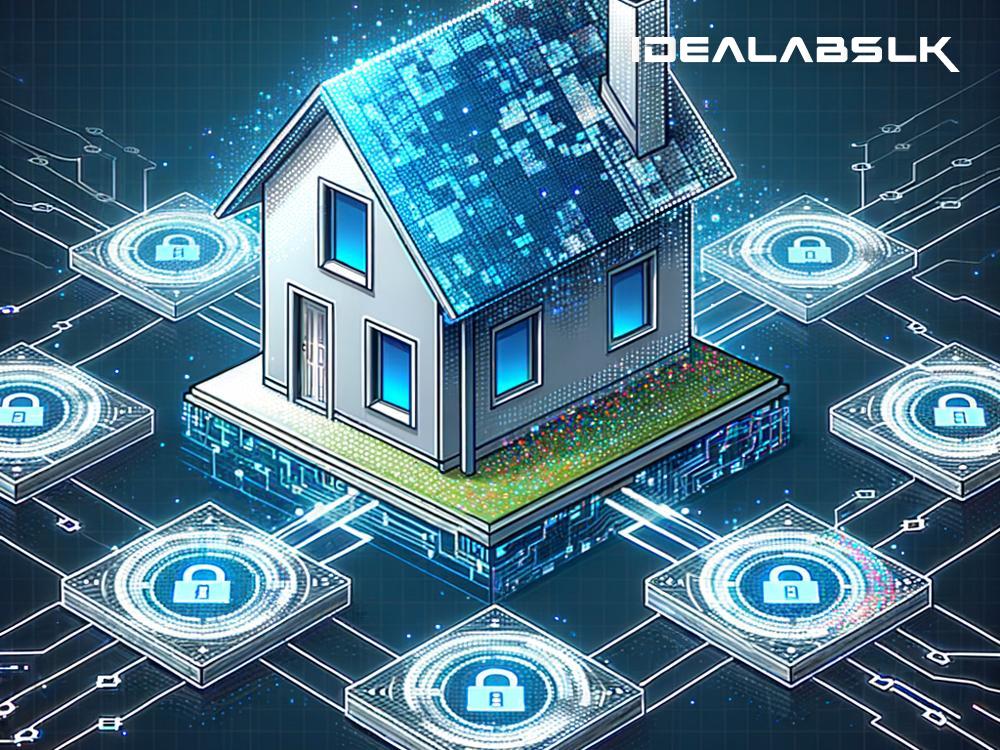Unlocking the Future: Blockchain in Real Estate Ownership Authentication
Today, stepping into the future might as well mean stepping into your new home, thanks to the revolutionary technology of blockchain. While blockchain has been synonymous with cryptocurrencies like Bitcoin, its uses stretch far beyond. Especially when it comes to real estate, blockchain holds the promise of transforming property ownership verification in ways we've hardly imagined.
So, what is blockchain, and how does it revolve around real estate ownership authentication? Let's dive in and unlock the future together.
Blockchain Simplified
Imagine blockchain as a digital ledger, except it's incredibly secure and almost impossible to hack or alter. Each block in the chain contains a number of transactions, and every time a new transaction occurs, a record of that transaction is added to every participant's ledger.
What makes blockchain standout is its decentralization. Unlike traditional ledgers, it doesn't have a central authority. This means that the information is not stored in one single place but is spread across a network of computers, making it remarkably transparent and secure.
The Traditional Real Estate Paradigm
Buying a property has long been riddled with paperwork, middlemen, and, unfortunately, a lack of transparency. From proving ownership to the endless verification processes, the journey is often long and cumbersome. The existing systems, although functional, are outdated, often leading to fraud, errors in public records, and a significant delay in transactions.
Enter blockchain, the modern-day hero ready to revolutionize the real estate world by bringing efficiency, security, and speed.
Transforming Real Estate with Blockchain
Authentication Like Never Before
At the heart of blockchain's revolution in real estate is its ability to authenticate ownership in real-time with unmatched accuracy. Blockchain can store property records securely and immutably. Once on the blockchain, these records, including ownership, transaction history, and property details, become easy to verify and hard to falsify.
Cutting the Middlemen
Blockchain paves the way for peer-to-peer transactions. Imagine selling or buying property directly, with smart contracts automatically handling the agreements and transfers. This not only saves time but significantly reduces the costs by eliminating the need for intermediaries like brokers, lawyers, and banks.
A Transparent Ecosystem
Transparency and trust are the foundations of blockchain. With all transactions being recorded on a public ledger, transparency is at an all-time high. Buyers and sellers have access to the history of the property, including past transactions and ownership details, leading to a trust-based relationship.
Speeding up Transactions
The real estate process is notoriously lengthy. Blockchain, however, can compress this timeline significantly. Through the use of smart contracts, transactions can be completed in a fraction of the time. These digital contracts automatically execute transactions once conditions are met, omitting the need for manual processing and verification.
Enhanced Security
Security in blockchain is top-notch. With its decentralized nature and cryptographic algorithms, falsifying property records or transaction history is nearly impossible. This reduces the risk of fraud, making real estate transactions safer for both buyers and sellers.
Real-World Applications
Blockchain in real estate is not a distant dream but a burgeoning reality. Several startups and enterprises are exploring blockchain for real estate, including property listings, ownership authentication, and even tokenizing real estate assets. Tokenization allows investors to own a portion of a property, making real estate investment more accessible to the masses.
Countries like Sweden are already experimenting with blockchain for land registries, aiming to make property transactions smoother and more transparent.
Overcoming Challenges
Despite its potential, blockchain in real estate faces hurdles, including regulatory acceptance, data privacy concerns, and the need for a robust infrastructure. However, as technology advances and awareness grows, these challenges are gradually being addressed.
Towards a Blockchain-Powered Future
Blockchain stands at the brink of transforming real estate ownership authentication, promising a future where transactions are secure, fast, and transparent. As we step further into this fascinating world, one thing is clear: blockchain in real estate is not just about technology. It's about reimagining trust, efficiency, and accessibility in one of the oldest industries in the world.
The journey of blockchain in real estate is just beginning, and it's set to unlock a future where owning your dream home is simpler, safer, and more satisfying than ever before.

